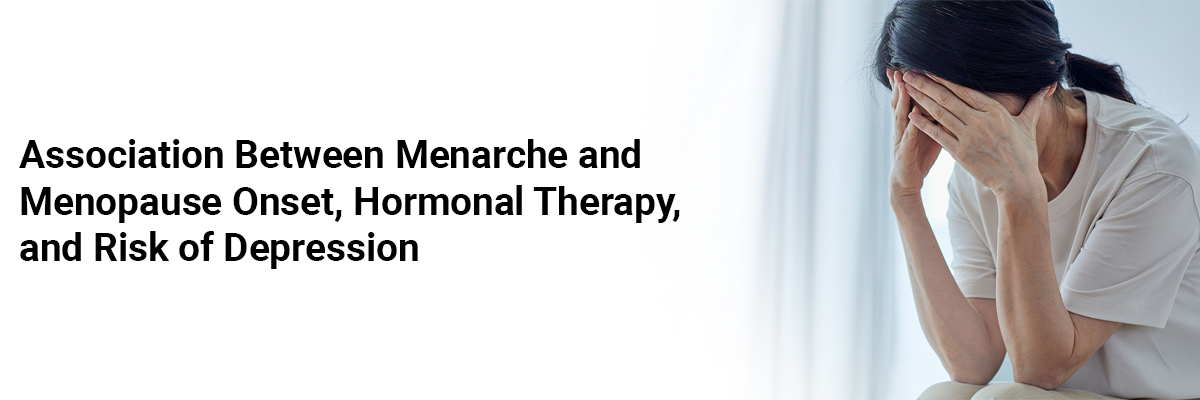
Association between menarche and menopause onset, hormonaltherapy, and risk of depression
Late onset of menarche and early menopause elevate the likelihood of depression. Additionally, the use of oral contraceptives and menopausal hormone therapy heightens this risk.The aim of a study was to explore the connection between female reproductive factors and depression risk.
This retrospective cohort study was conducted using a national database in South Korea. The study included 945,729 eligible postmenopausal women and examined the relationship between various reproductive factors, such as – age at menarche, age at menopause, number of children, duration of oral contraceptive (OC) use, breastfeeding duration, and menopausal hormone therapy (MHT) usage—and their correlation with depression incidence.
The results revealed that women who had menarche at age 15 or later had a higher risk of depression compared to those who had menarche at 12 years of age or earlier––with an adjusted hazard ratio (aHR) of 1.09 for ages 15-16 years and 1.18 for age 17 years or older. Meanwhile, women who had menopause before age 40 had a 1.20 aHR for depression, whereas those who had menopause at 55 years or older had a reduced risk with an aHR of 0.94––compared to women who reached menopause between ages 50-54 years. The use of MHT for five or more years was linked to an increased risk of depression, with an aHR of 1.30. The duration of breastfeeding and the duration of OC use showed weak but U-shaped associations with depression risk. However, the number of children did not significantly impact the risk of depression.
From the findings, it was inferred that late menarche, early menopause, and prolonged MHT use are associated with an increased risk of depression in postmenopausal women.
Source: Kim H, Jung JH, Han K, et al. General Hospital Psychiatry. 2023 Jul 1;83:35-42.














Please login to comment on this article